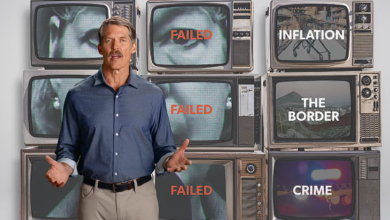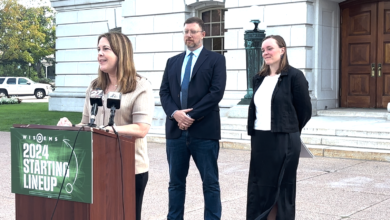DNR staff fashioned coup d’etat attempt


Yesterday I mentioned that I would be posting a piece from the archives further exploring how bureaucracies work to subvert the law. In this piece, the Wisconsin DNR fashioned a regulation that effectively repealed a law, though in the end public outcry blocked their effort. But it’s an interesting case because it shows with great clarity not only how bureaucracies undermine representative democracy but how the left cheerleads those efforts: When the regulation was first unveiled, groups such as the Sierra Club hailed the bureaucracy’s action to “overturn” what the elected legislature had done.
A bureaucratic coup was right out in the open. Talk about insurrection.
The issue, as I always try to frame it, is: Who is making the decisions that govern our lives? Elected legislators are far from perfect—it’s often best when they do nothing at all—but with representative democracy we at least have some control through elections on matters that fundamentally impact our lives. Not so with the “experts” in the bureaucratic collectivist state, who have only their own power interests to preserve and expand when they make decisions. More, even when bureaucrats think they are acting in the public interest, they turn out to be wrong almost as much as they are right. And that’s why the public must determine what actions are best for the public interest, not bureaucrats. Not every legislative decision is a good one, but at least we have recourse and accountability. Self-determination must include the right to be wrong.
In another note, yesterday Julian Assange was freed from a high-security prison and is free, finally. It’s an election year ploy, but no matter. Still, the plea involves a guilty plea under the Espionage Act and that colors it, especially when it comes to the future of journalism in this country. More on that later today or tomorrow.
Now, from the archives:
Whoever wrote the DNR’s recently enacted emergency rules for waterway permitting should be given an award. Let’s call it the Harold Geneen Lifetime Achievement Award.
Most readers probably won’t remember Harold Geneen, but he was one of the all-time great schemers against the democratic process, a businessman so integrated into the workings of the U.S. government’s deep state that he might as well have been a bureaucrat himself.
Once upon a time, in the 1950s, Geneen hatched a plan to pass along higher oil company costs to American taxpayers. It seems the Saudis were jacking up the payments they wanted Aramco to pay for their oil, and the oil companies feared they would be nationalized if they didn’t go along.
Enter Geneen. He figured it might as well be taxpayers footing the higher bill, not the oil companies. So he proposed letting the oil companies treat their royalty payments to the Saudis as taxes rather than as business expenses deducted before the payment of corporate taxes. That allowed the oil companies to take a 100 percent tax credit for the higher payments.
Over the years the arrangement cost the U.S. Treasury billions of dollars every year—$2.5 billion in 1971 alone—and when the story was recounted at a Senate subcommittee hearing in 1974, Sen. Charles Percy marveled about the genius of it: “He’s always coming up with ideas like this,” Percy beamed.
Indeed he was. As president of ITT, Geneen came up with another stroke: He persuaded the United States government to overthrow Salvadore Allende, the popularly elected Chilean president. After all, why let a little thing like a democratically elected government stand in the way of what needs to get done?
That must surely have been the question on the minds of DNR staff when they sat down a few months back to write proposed emergency rules on waterway permitting. It certainly was on the minds of environmental groups that wanted the law granting expedited permitting overturned.
The 12 emergency rules implement the state’s Job Creation Act. That law, Act 118, creates a three-tier system for regulating development projects along lakes and rivers. Under previous law, all projects required an individual permit and DNR review; Act 118 exempted some activities from the permitting process unless they were proposed for trout streams or other sensitive waters.
Environmentalists immediately attacked the legislation when it was proposed and urged Democratic Gov. Jim Doyle to veto it after the Legislature passed it. Doyle signed it anyway, and at that point environmentalists launched an aggressive effort for the emergency rules. It’s pretty clear what they wanted—a rule that would basically restore the previous law. They wanted the DNR to effectively repeal what lawmakers had passed and the governor had signed.
And DNR staff obliged them by writing a document that might as well have been penned in the Ivory Tower of the Sierra Club, a sweeping rule excluding virtually every water body in the state from the more lenient permitting provisions of Act 118. What they wrote was a bureaucratically divined law that would supersede the democratically enacted state statute.
The final rules package differed in content, but it’s important to understand exactly what this environmental-bureaucratic coalition attempted: a coup-d’etat and takeover of our elected government, Harold Geneen-style. It is simply reprehensible that non-elected bureaucrats, acting in tandem with private special interests, would even consider such a corrupt act, much less be proud of it. But proud of it they were.
Of course they attempted to legitimize their illicit pursuit by draping it in democratic sounding excuses and alibis. One argument pointed to what they called vague statutory language that, broadly interpreted, would qualify virtually every water body in the state, save a few carefully defined areas, for the act’s more lenient provisions. A rule, environmentalists said, would clarify the vagueness, defining where the statute would apply specifically, but such a rule could in turn only be written by following the Legislature’s stated intentions in passing the legislation.
And what were those stated intentions?
Well, the environmentalists argued, the governor and lawmakers all had promised that the new law would not sacrifice existing environmental standards. Since more lenient provisions would obviously undercut environmental standards, the lawmakers must have intended for the act to apply only to a few waterways.
You can see the circular logic at work. Opponents transformed an assurance by lawmakers about the law’s impact into an “intention,” and then used an assertion that merely assumed what they were trying to prove (more lenient permitting provisions undercut environmental standards) to conclude that the new law actually ran counter to what the lawmakers themselves intended to pass.
So now a new rule was needed, well, to repeal the mistake lawmakers had made.
That’s absurd, of course. Lawmakers would not pass legislation that would be essentially meaningless if legislative intent was followed. If legislative intent meant restoring the old law, then why did lawmakers change the old law in the first place?
A parallel argument is equally absurd, a Sierra Club contention that the new rule was needed to “fill in gaps” in the statute. The new rule was simply a bridge, in other words, between intention and definition.
But it’s the environmentalists’ intentions—not vagueness or gaps in language—that are important, and those are clearly stated again and again. Read carefully:
“DNR staff have recommended to the Board that they adopt a detailed set of emergency rules that restore many of the protective standards that were deleted from the statutes in Act 118,” Wisconsin Wildlife Federation President Jerry Knuth said when the rules were proposed. “Hunters, anglers, trappers and other Wisconsin citizens are very interested in seeing that these rules are adopted to ensure that fish and wildlife habitat, natural scenic beauty and water quality are not harmed because of the removal of protective standards in the actual language of Act 118.”
The key words here are “restore many of the protective standards that were deleted from the statutes.” In other words, they wanted the agency to repeal the offending portions of the act. They wanted the DNR to write a new law, which is exactly what DNR staff attempted to do.
The opponents of Act 118 do raise a worthy argument about the law’s constitutionality. On its face, some environmental lawyers have argued, the statute violates the state’s Public Trust Doctrine by not requiring the minimum standards necessary to implement that doctrine. A worthy point to consider, yes, but again one whose proper place for dispensation lies with judges, not DNR rule writers.
This is clearly not an isolated instance, and a problem not limited to the DNR, though it has manifested itself most dramatically there. But the administrative rules process — and the ability of state agencies to impose emergency rules — needs to be revisited. If people don’t like a law, they should pursue a legislative remedy and, failing that, an electoral one. Emergency rules need to be just that, rules for emergency situations, not temporary agency fiats that amount to lawbreaking.
But hand it to the DNR. Once again they have shown us the urgent need for government reform. Does somebody have an emergency rule handy for that?
Source link



